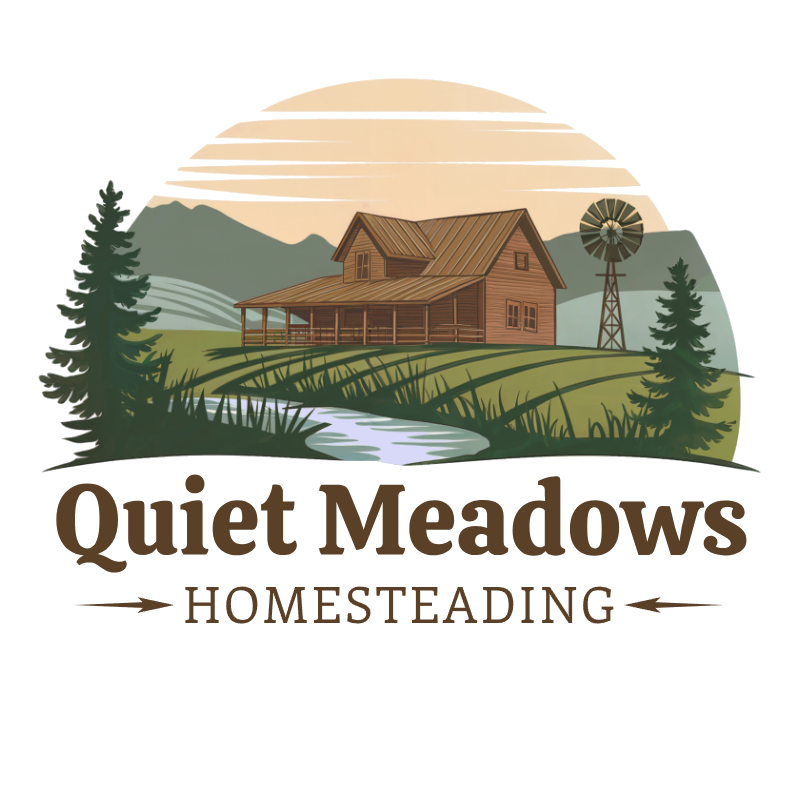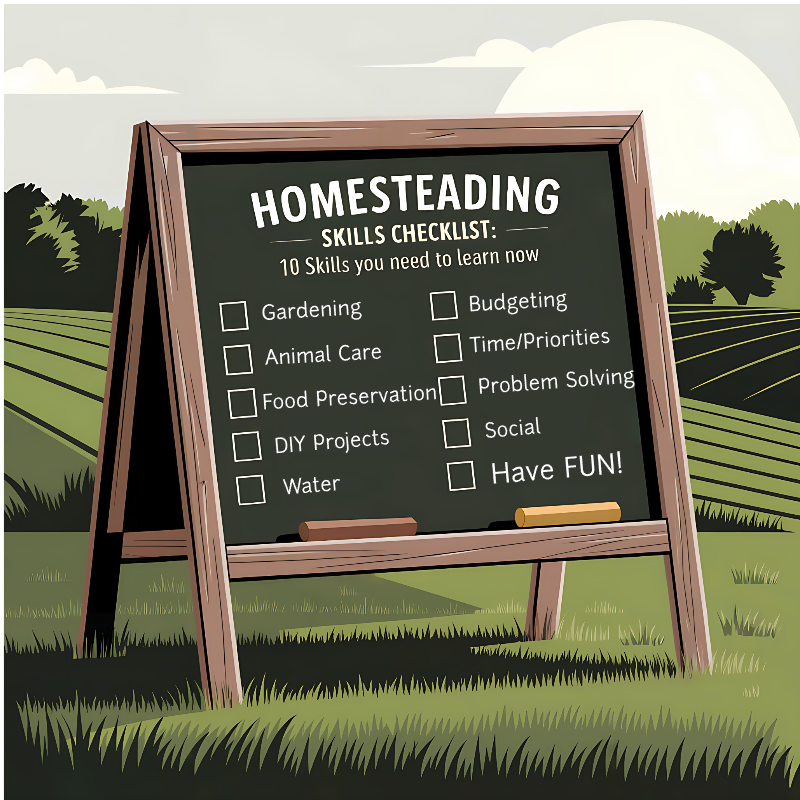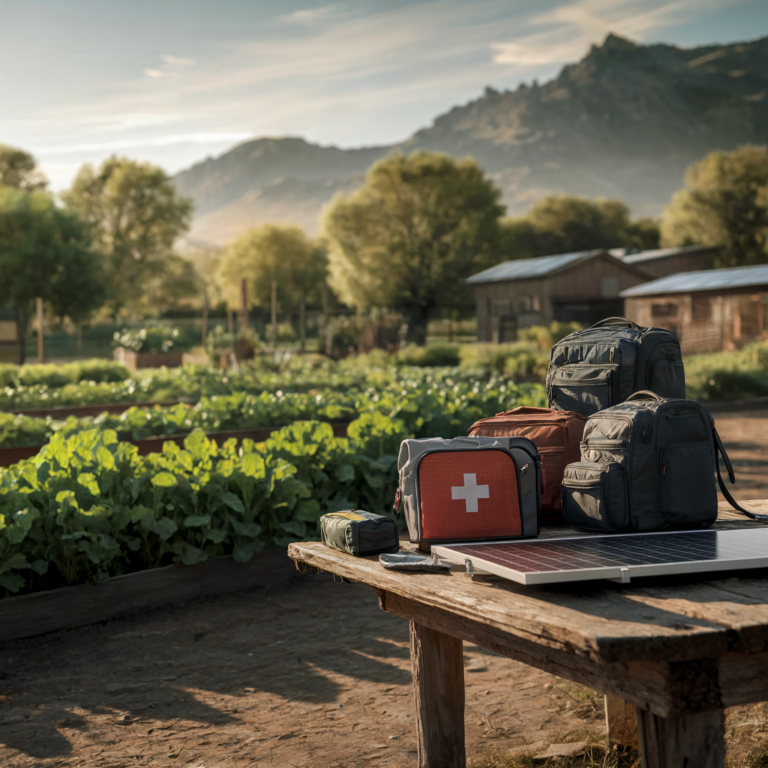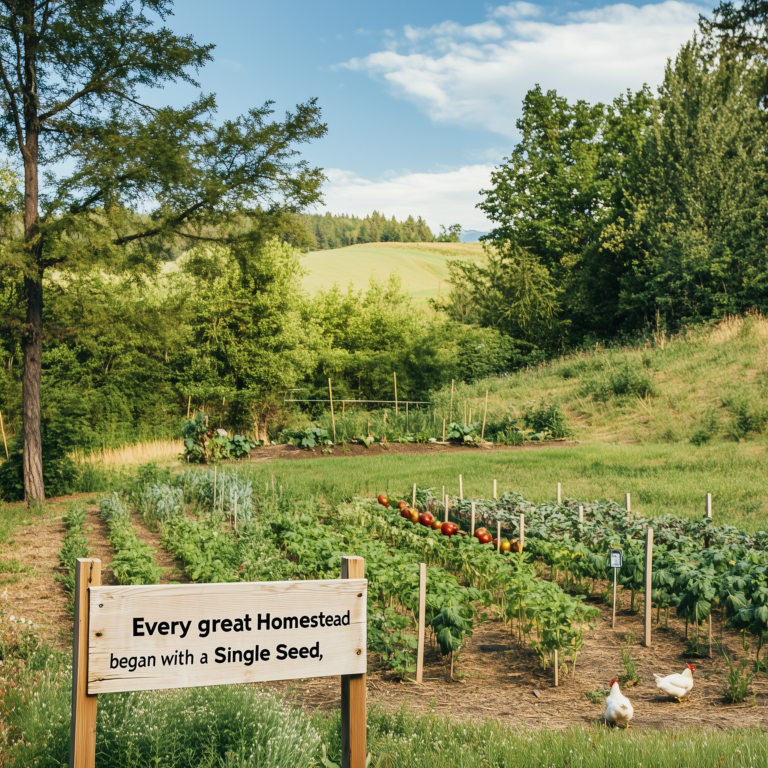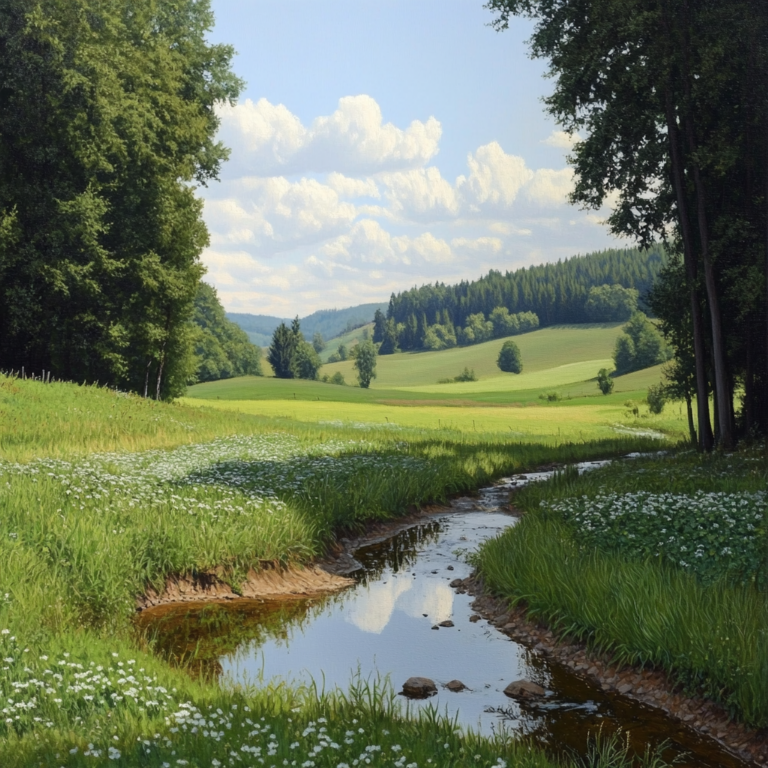We may earn a small commission when you purchase through our affiliate links. This helps fund Quiet Meadows Homesteading and our mission to promote self-reliance. We appreciate your support!
10 Skills Every Future Homesteader Must Learn Quickly
So, you’re ready to dive deeper into the world of homesteading? I know the idea of self-sufficiency gets your heart racing—fresh produce on your plate, raising livestock that supports your homestead, and enjoying a freedom that you just can’t get from a 9-to-5 job. But before you start dreaming of a picturesque, fully self-sustained life, let’s talk about the basic skills you’ll need to get started.
I’m not here to rattle off a boring checklist, but rather to share some insights on the skills that can transform your own homesteading journey. These skills aren’t just tasks to check off; they’re stepping stones to a more resilient, resourceful homestead.
1. Getting Your Hands Dirty – Gardening Basics
It all starts in the soil (unless of course, you happen to be dealing in Hydroponics 🤣). You don’t have to become a master gardener overnight, but learning how to nurture a simple garden can be life-changing.
I remember my first attempt at planting a garden in my backyard—nothing would grow. Turns out that our soil was actually ‘sand’. There was nothing to hold in moisture and there were no nutrients in the soil. I ended up watering sand for a month! Yet, that misadventure taught me the importance of Soil Management, proper watering, and a lot of patience. After much discouragement, we decided to construct our first raised garden bed. Even that came with it’s own set of challenges. There are many different methods of growing a vegetable garden – but it all starts with the right soil.
2. The Art of Animal Care
Ever thought about having a few chickens, a goat, or even a mini cow? Handling livestock isn’t just about collecting eggs or milk—it’s about understanding the responsibility and joy that comes with caring for living creatures. Animals aren’t as predictable as they seem. They require routine, love, and sometimes, a well-placed fence. It’s a skill that builds not only food security but also character.
3. Food Preservation – Capturing Summer in a Jar
Imagine the satisfaction of turning your garden bounty into jams, pickles, or even dried herbs that you can enjoy all year long. I won’t lie: my first attempt at canning wasn’t easy. I had watched my mom do it years before, but had never done it myself.
One year we had boxes full of tomatoes that were given to us and there was no way we could use them all before they went bad. There were so many tomatoes that we decided to invest in one of those Electric Tomato Strainers. We also had to purchase canning jars. Our initial investment certainly paid off. We made enough tomato sauce to feed our family for three years! We did lose a couple jars in the process that didn’t seal properly.
It was through trial and error, I learned the proper techniques of canning. Now, I have a peace knowing that I have the skills to provide food for my family long after the harvest season is over.
4. Basic Carpentry and DIY Projects
Whether it’s building a raised garden bed, repairing a fence, or putting up a greenhouse, a little DIY goes a long way on a homestead. I quickly discovered that even if you’re not a carpenter by trade, learning a few basic skills can save you money and allows you do more things on your own.
There is a wise saying: ‘Give a man a fish and he has food for a day; teach a man to fish and he has food for life.’ One of the most important assets of a homesteader is learning how to do things on their own. Don’t be afraid to try, take the plunge. Learn to fish. Isn’t that the reason you are here? To become self-reliant and build a homestead of your own? Plus, every project is a chance to add a personal touch to your homestead.
5. Water Management and Conservation
Water is a necessity for maintaining life—especially when you’re growing your own food. Learning how to set up an efficient watering system (think drip irrigation or even a rainwater collection system) is key. Most people tend to go one extreme or the other when it comes to watering plants. I overwatered my plants out of excitement, only to watch them drown. Now, I understand that it’s all about balance and sustainability.
6. Budgeting and Financial Management
Homesteading isn’t just about physical work; it’s also about managing your resources wisely. Keeping track of expenses, planning for seasonal costs, and sometimes even learning a bit of accounting are essential skills. Even if you’re starting small, a basic understanding of money management can make a big difference in your homestead’s success.
7. Time Management and Prioritization
When you’re juggling gardening, animal care, DIY projects, and all the other aspects of homesteading, time management becomes your best friend. I realize I probably sound like your boss at work right now, but trying to do everything at once only leads to burnout. Instead, focus on one task at a time and celebrate the small wins.
8. Learning to Adapt and Problem-Solve
No homestead journey is without its unexpected challenges—be it a sudden pest infestation or an uncooperative season. The ability to adapt and troubleshoot on the fly is invaluable. I’ve come to relish the unexpected as an opportunity to learn something new, rather than as a setback.
9. Community Building and Networking
One of the most underrated skills is knowing when to ask for help and sharing your journey with others. Whether it’s joining an online homesteading group or attending local workshops, connecting with like-minded folks can provide support, ideas, and even new friendships that enrich your homesteading life.
10. Embracing the Journey with Humor
Last but not least, remember that every homesteader’s path is full of ups, downs, and plenty of laughter in between. Some days, your garden might look more like a jungle than a neat plot, and your animals might have a mind of their own. Embracing these moments with a sense of humor not only makes the journey enjoyable—it turns every challenge into a cherished memory. If you need a good laugh, check out Quiet Meadows’ online store for fun novelty items and humorous apparel. Plus, your support helps us continue providing valuable information to guide you on your journey.
In Conclusion
Homesteading is a rich tapestry of skills that blend together to create a lifestyle of self-reliance and fulfillment. You don’t need to master everything overnight. Start small, learn as you go, and remember: every mistake is a stepping stone toward success. I hope these insights inspire you to take that next step on your homestead journey.
What’s the first homesteading skill you’re excited to learn? Let me know in the comments—I’d love to hear your story. And if you found this guide helpful, be sure to subscribe for more down-to-earth tips and adventures in homesteading.
God Bless, and remember—every great homestead began with a single seed!
Fun Fact: According to The National Archives , The federal Homestead Act was created by Abraham Lincoln in 1862, which allowed free land to settlers. However, it was repealed in 1976 (with a special 10 year provision for Alaska – 1986). Although the the Act is no longer in effect, people can still live a homesteading lifestyle by purchasing land and practicing sustainable living.
